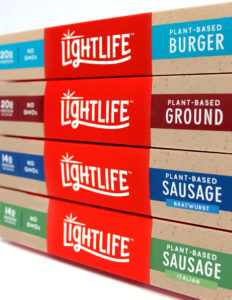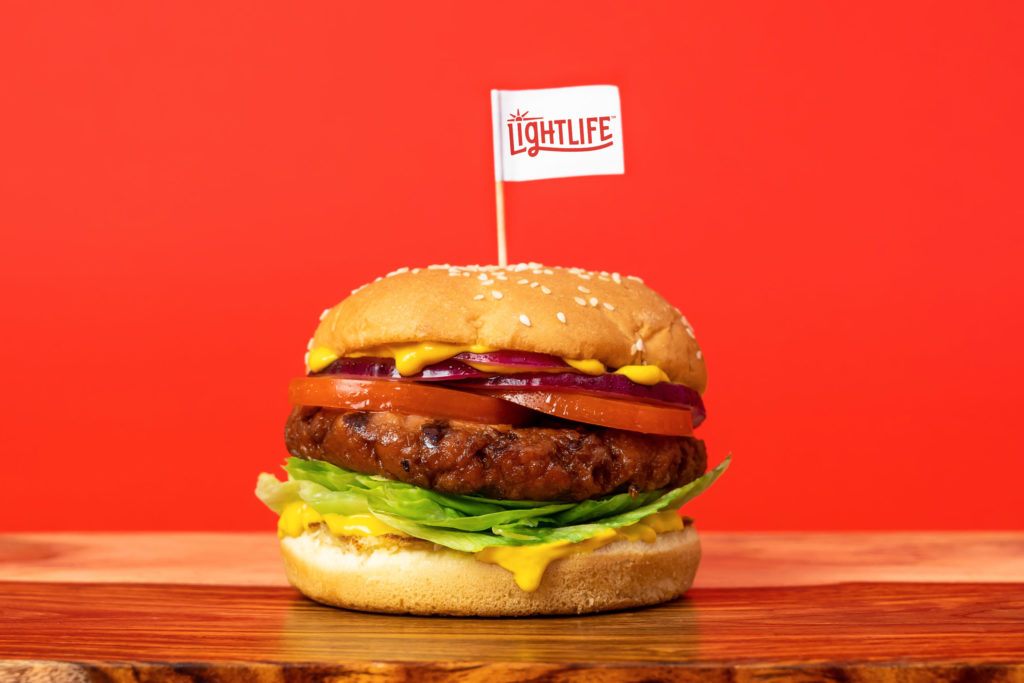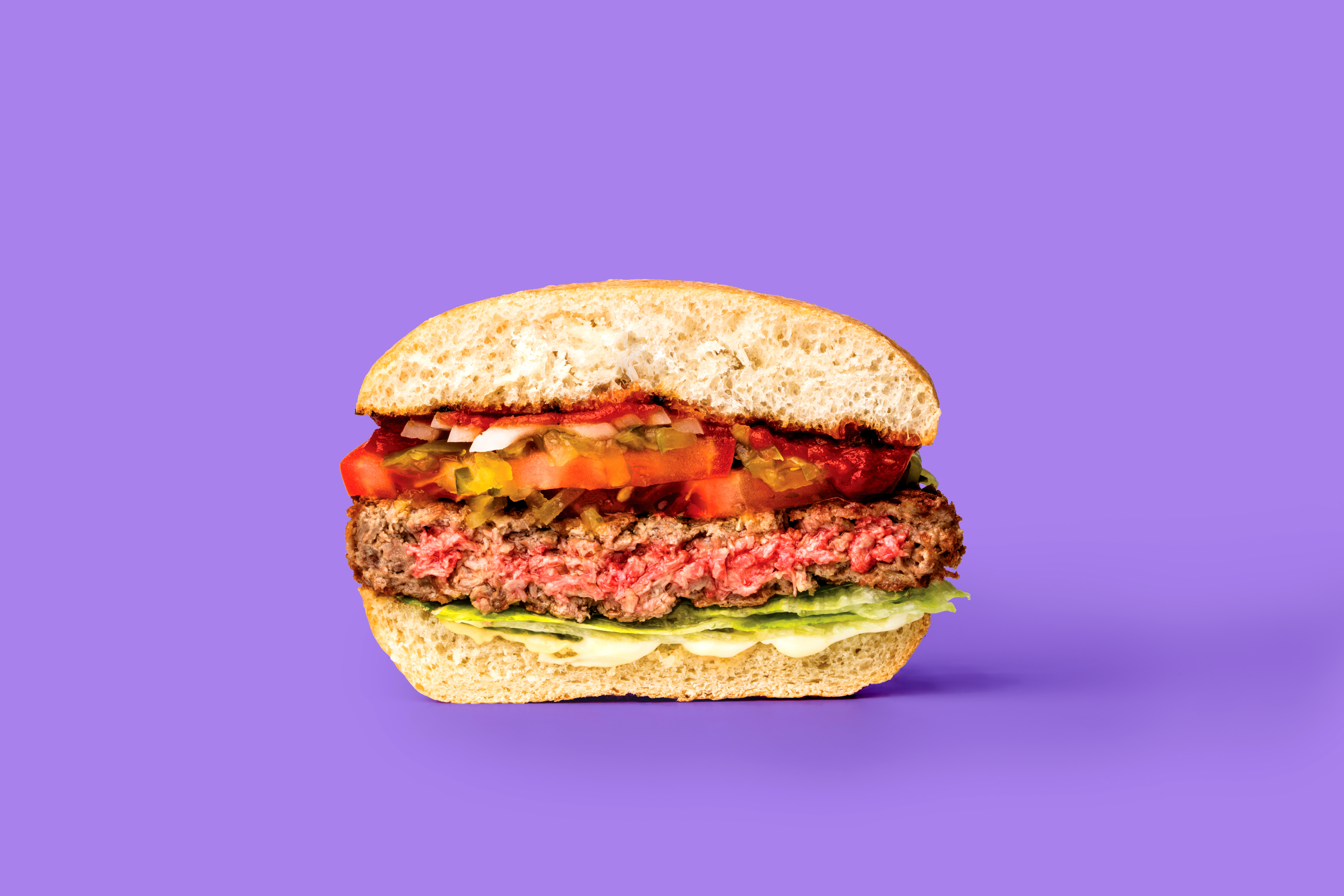A battle royale between plant-based burger brands is well underway and a new competitor has entered the ring.
Maple Leaf Foods is launching a line of pea protein-based meat alternative products, including a new plant-based burger, under its Lightlife portfolio.
The Lightlife Burger has 20 grams of pea protein with 0 grams of cholesterol and 2.5 grams of saturated fat in a quarter-pound patty. Much like its well-known predecessors, the Lightlife Burger boasts all the flavor, aroma and texture of beef.

“Our new burger is delicious thanks to decades of culinary know-how, and we know we’ll be serving up an entirely better experience for consumers who want a break from traditional meat or whose palates are craving a new adventure,” said Dan Curtin, President of Lightlife Foods.
The pea protein-based line also includes bratwurst sausage, Italian sausage and an alternative to ground meat. With demand for plant-based products experiencing rapid growth, the company is getting the patties onto the market quickly.

The Lightlife Burger will start shipping to foodservice companies in January in the US and will start hitting grocery shelves in late March. The Canadian launch follows suit in April.
Lightlife Foods is known for creating vegetarian products like the Gimme Lean meatless “beef,” Tofu Pups hot dogs and Organic Fakin’ Bacon Tempeh Strips. In 2017 Maple Leaf Foods Inc. acquired the company for $140 million.
“The acquisition of Lightlife provides Maple Leaf with a leading market position and brand in the United States in a category that is outpacing growth in the broader packaged foods sector,” said Michael McCain, President and CEO of Maple Leaf Foods, in an announcement about the acquisition. “We will expand our presence through investment in brand building, innovation and leveraging our respective capabilities.”
It’s no surprise that the $2.6 billion Canadian meat conglomerate wants a piece of the meat-alternative pie. Research shows that a growing number of Americans are interested in trying meat-mimicking products.
Nearly eight in 10 US Millennials eat meat alternatives, compared to more than half of non-Millennials, according to research firm Mintel. While a third of US consumers plan to buy more vegetarian or plant-based food products in the next year, rising to nearly two in five of Millennials.
As mainstream consumers continue to show interest in healthier, more sustainable forms of meat, competition in the plant-based meat market is heating up.
In fact, the popular Beyond Burger has sold more than 25 million vegan patties worldwide. Yesterday, the brand also announced plans to make plant-based bacon and steak.
Earlier this month, Impossible Foods released its next-generation meat-free burger, featuring a new recipe which sees the burger get its meaty chew and texture from soy protein, not wheat protein.












Join or login to leave a comment
JOIN LOGIN